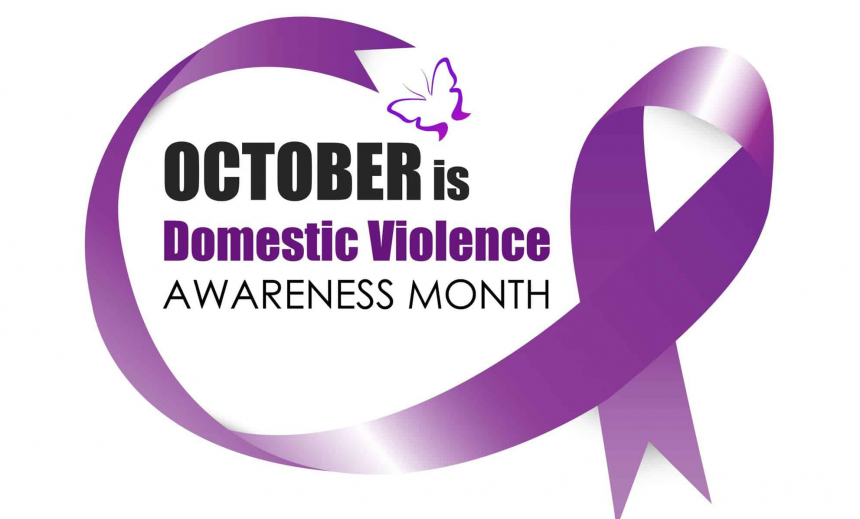DOMESTIC VIOLENCE AWARENESS MONTH
Domestic violence could be defined as any formof abuse, whether physical, emotional, or sexual, inflicted upon a person by the members of their family or by their intimate partners. The problem of domestic violence is almost synonymous with violence against women, given that it is mostly women that are at the receiving end of it. Domestic violence is a pervasive issue that continues to plague our societies well into the 21st century, a supposed era of modernity and heightened thought. It is a ghost that refuses to go away.
Jammu and Kashmir, like other parts of South Asia, has seen a galloping trend when it comes to domestic violence. A BMC women’s health research study suggests that Jammu and Kashmir saw an increase of 160% in crimes categorised under “cruelty by husband and relatives” during the 2001-18 period. More recently, there was a worrisome surge in such cases during the COVID-19 lockdown.
When we speak about domestic violence, we often restrict our discussions to women being subjected to physical abuse. The emotional and mental abuse is either neglected or brushed aside as something minor, something that shouldn’t even be a cause of dispute in a relationship. Psychological abuse is normalized to the point that nobody speaks of it. The humiliation and intimidation that women are subjected to for not being able to meet the expectations of their husbands or in laws should be a topic of discussion at every relevant forum.
Quoting the world Health Organization, “Emotional abuse can be as harmful as physical or sexual abuse. It erodes a person’s self-worth, dignity, and mental well-being, leaving long-lasting consequences on their overall quality of life.”
Centre for Disease Control and Prevention, USA states that “Emotional abuse is a form of domestic violence that involves using words, actions or lack of actions to control, demean or isolate another person.”
The Indian law includes emotional and verbal abuse in its definition of domestic violence alongside physical, sexual and financial abuse. In a landmark amendment to the “Protection of women from domestic violence act (2005)” earlier in 2024, the scope of psychological violence as a part of domestic violence was expanded and clarified, making it easier for women to seek legal support in such matters.
There are some more appreciable steps taken by the Indian government to bring the scourge of domestic violence under control. These include:
- Establishment of One Stop Centres which provide a variety of aid to the survivors ofdomestic violence such as legal aid, counselling and emergency assistance.
- Setting up of National and State level helplines.
- Training for law enforcers and judicial personnel in order to sensitise them to the issue of domestic violence and help them have a victim-centeredapproach.
- Providing financial support NGO’s working for women.
- Establishment of fast track courts to provide speedy justice to the survivors of Domestic violence.
The problem of domestic violence needs a far deeper treatment than any surface-level steps. It stems from unhealthy cultural norms, imbalances in power and the general attitude of the society which is often apathetic.Law can provide justice but the true remedy lies in strengthening the social folkways and mores against this evil.People must move a step ahead from merely condemning violence against women. It is critical thatwe actively assist the authorities in curbing this menace. It could be through speaking out upon witnessing such violence, informing the relevant agencies and spreading awareness about this issue.
October is globally recognised as the Domestic Violence Awareness Month (DVAM). Let us all pledge that we as a society will recognise the various forms of domestic violence, including emotional and mental abuse, and not brush them under the carpet upon witnessing such incidents. Only then would we be able to create safe spaces for everyone, especially our women.
(The Author is MA Political Science and International Relations. Email: [email protected])








